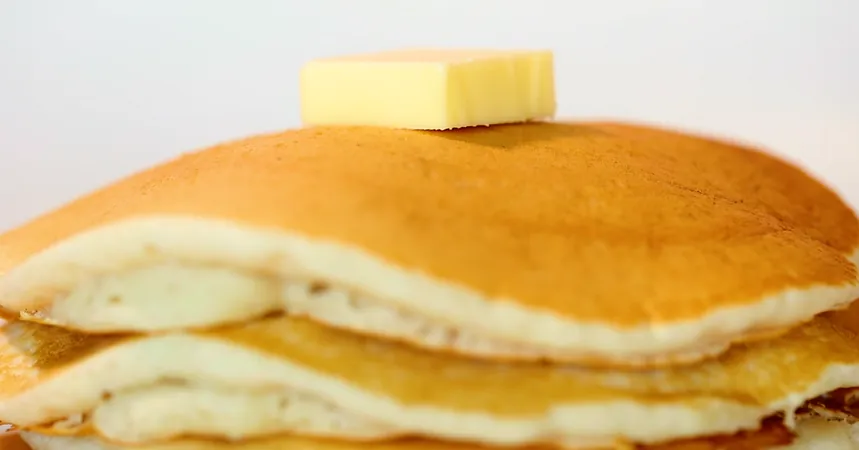
The Sweet Controversy: Is Maple Syrup a Miracle Cure or Just Marketing?
2025-04-15
Author: Daniel
The Sugar-Coated Science Behind Maple Syrup
For over ten years, Navindra Seeram, a prominent biomedical researcher and dean of the School of Pharmacy at the University of New England, has been championing maple syrup as a potentially life-saving "hero ingredient." His extensive research, funded significantly by the Canadian maple syrup industry and both Canadian and American governments, has brought attention to this sticky sweetener.
From Researcher to Promoter
But Dr. Seeram isn't just a scientist; he proudly wears the hat of a maple syrup pitchman. He has boasted about his unique qualifications in promoting this 'superfood,' assuring Canadian industry leaders of his ongoing support for Quebec maple syrup.
The Fine Line Between Fact and Fabrication
However, a detailed review by The Examination and The New York Times suggests that he may have blurred the lines between scientific findings and promotional hype. While his studies indicate that maple syrup has beneficial plant compounds, his public statements have gone as far as suggesting that this sweet syrup could fight diseases like cancer, Alzheimer’s, and diabetes. Other experts have criticized his claims as inflated, arguing that they exaggerate the actual health benefits.
Funding Fuels the Fire of Controversy
With ongoing funding challenges in nutrition research, Dr. Seeram's situation exemplifies the risks associated with intertwining science and marketing. His time at the University of Rhode Island saw the awarding of $2.6 million in government grants, with some funds directed explicitly at boosting maple syrup sales. His promotional endeavors have included social media campaigns championing its 'anti-cancer' and 'anti-inflammatory' properties.
A Closer Look at the Research
Dr. Seeram acknowledges that the health benefits reported stem from concentrated doses of maple compounds in lab tests, not from regular consumption of maple syrup. While he espouses belief in natural remedies, critics argue his cautious wording—using terms like "may" and "could"—does not mitigate the overly positive portrayal he offers.
The Fallout and Future of Maple Advocacy
Despite the criticism, Dr. Seeram remains steadfast, distancing himself from accusations of research misconduct and claiming an unjust scrutiny of his work. He has openly discussed strategies for promoting maple syrup, asserting that scientific studies feed into marketing efforts aimed at persuading consumers of its benefits.
Financial Backing and the Pressure to Perform
His relationship with the Quebec Maple Syrup Producers, who have financially supported his work to the tune of at least $2.8 million, raises questions about potential conflicts of interest. In return for his promotional efforts that spanned over a decade, he reportedly earned fees exceeding $37,000 in 2023 alone.
Misleading Comparisons and the Bigger Picture
Dr. Seeram's scientific past also includes collaborations tied to pomegranate research during a juice marketing blitz, which at one point drew scrutiny from the Federal Trade Commission. Likewise, some of his maple syrup claims, including comparisons of its compounds to breast cancer treatments, have been labeled misleading by independent experts.
As the debate continues, consumers are left wondering: Is maple syrup a miraculous health elixir or just a cleverly marketed product amenable to creative scientific interpretations?



 Brasil (PT)
Brasil (PT)
 Canada (EN)
Canada (EN)
 Chile (ES)
Chile (ES)
 Česko (CS)
Česko (CS)
 대한민국 (KO)
대한민국 (KO)
 España (ES)
España (ES)
 France (FR)
France (FR)
 Hong Kong (EN)
Hong Kong (EN)
 Italia (IT)
Italia (IT)
 日本 (JA)
日本 (JA)
 Magyarország (HU)
Magyarország (HU)
 Norge (NO)
Norge (NO)
 Polska (PL)
Polska (PL)
 Schweiz (DE)
Schweiz (DE)
 Singapore (EN)
Singapore (EN)
 Sverige (SV)
Sverige (SV)
 Suomi (FI)
Suomi (FI)
 Türkiye (TR)
Türkiye (TR)
 الإمارات العربية المتحدة (AR)
الإمارات العربية المتحدة (AR)